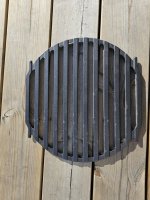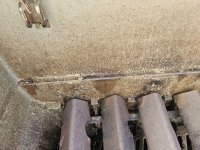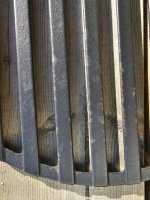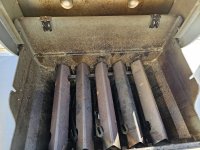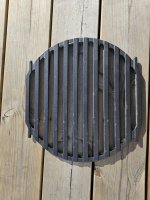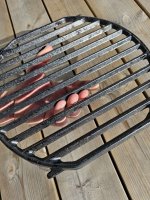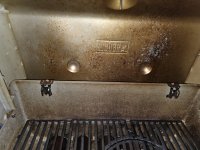Hello,
Start of the season, but is this a rust already on few months used grates? Is genesis ii e-310.
And grill looks quite messy, how you usually clean inside parts?
Start of the season, but is this a rust already on few months used grates? Is genesis ii e-310.
And grill looks quite messy, how you usually clean inside parts?

